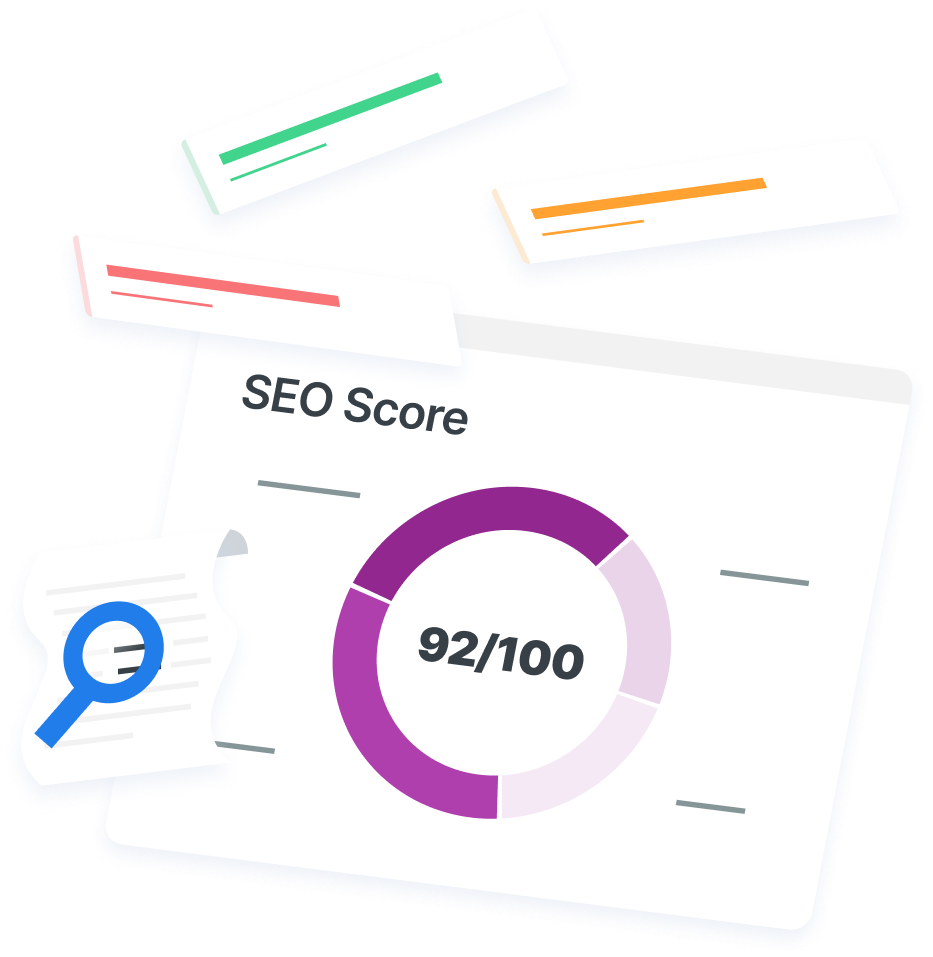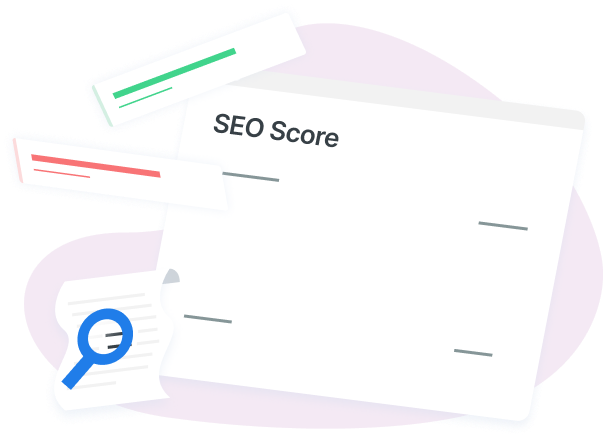-
 Published: Mar 10, 2022
Published: Mar 10, 2022
-
 5 min. read
5 min. read
-
 Macy Storm
Macy Storm Senior Content Creator
Senior Content Creator
- Macy is a marketing writer with over five years of experience creating content for dozens of industries including food and beverage, home services, and education. She also specializes in creating SEO and PPC content. Her work has been featured by Search Engine Journal, HubSpot, Entrepreneur, Clutch, and more. In her free time, Macy enjoys trying new crafts and reading comic books.
When you’re searching online, there are descriptors attached to every website that help search engines like Google determine the relevancy of your pages. These descriptors are known as metadata.
On this page, we’ll answer all your questions about metadata, including:
- What is metadata?
- Why is metadata important?
- What types of metadata are there?
- What metadata is important to search engines?
Keep reading to learn more! And if you want to stay in the marketing know-how, subscribe to our newsletter Revenue Weekly!
What is metadata?
The metadata definition can be a bit confusing — it’s data that describes other data. Metadata is structured information that makes it easier to explain and use data. Think of it as information about the information.
Why is metadata important?
So, want to know why metadata matters? Here are three reasons why metadata is essential for your business:
1. It helps you classify information
One of the benefits of metadata is that it helps classify the data you have. Metadata helps to give your data and information meaning, which helps with categorizing and organizing information.
Classification is critical for helping people, and search engines understand information. It can include valuable information like:
- Keywords
- Title
- Author
- Publication date
- Access permissions
- And more
Having this information helps classify data and provide additional helpful information.
2. It helps with search engine optimization (SEO)
Metadata is critical for helping you rank in search engines. The importance of metadata is that it provides search engines with information about the content on your pages. It helps search engines process information on your page and understand the context.
By using metadata, you help search engines determine the relevancy of your content. It uses that data to determine where to rank your pages and decide if your content is relevant to the search results for the keywords you target. Metadata also helps Google index your pages for the right results.
You want to use metadata to help your content appear in front of the right people so that you can drive qualified traffic for your business.
3. It helps search engines process visual elements
Words aren’t the only thing you have on your website pages. You have images and videos to help engage users and get them to interact with your content. Search engines, however, can’t read these visual elements on their own.
But with metadata they can.
One of the benefits of metadata is that it enables you to provide context to your photos and videos. It can look at the image’s title or the alt text. Both pieces of information provide the search engine with the context of what’s on your page.
As a result, you can use this metadata to help contribute to your page’s context, so your page will appear in more relevant search results.
What types of metadata are there?
Now that you know why metadata matters, it’s time to look at what types of metadata you can use. Metadata doesn’t come in just one type — there are multiple options.
Here are some types of metadata you may see:
- Descriptive metadata: As the name implies, this type of data describes the page or element. Think of descriptors like titles, names, and keywords. These descriptors help provide context.
- Structural data: With structural data, you’re getting information on the makeup of content on a page. For example, if you have a picture on your website, the dimensions of the picture would qualify as structural data.
- Administrative data: Administrative data focuses on delivering information about the results and restrictions of content. If you have limits on pages, this metadata will provide the information on who can access it.
What metadata is essential for search engines?
When it comes to using metadata in marketing, the main place it matters is search engines. Search engines like Google use metadata to help determine the relevancy of your content. Here’s some metadata you’ll want to optimize:
- Title tags: Your title tag is the descriptor that appears at the top of search results. This tag provides your audience and search engines with information about your pages. You’ll want to optimize this tag to deliver helpful information through descriptive text and keywords.

- Meta description: Your meta description provides your audience with a summary of the information on your page. You’ll want to integrate keywords into this description to help search engines identify the context of your page.

- Alt tags: Your alt tags provide search engines with a description of your images. You’ll want to provide clear details and use your target keywords to help provide search engines with the context of your images.
- Keywords: Keywords help your pages rank in relevant search results. You’ll want to optimize your pages for keywords to help search engines understand the context of your pages.

Need help optimizing your metadata and SEO?
Metadata is a critical component to helping search engines understand your pages’ context. If you don’t know how to optimize your metadata or other facets of your SEO, WebFX can help. We have a team of over 500 experts ready to help you launch your SEO campaign.
Our team of experts knows how to launch SEO campaigns that help you grow online. In the past five years, we’ve driven over $6 billion in revenue and over 24 million in leads.
Ready to drive revenue with your SEO campaign? Contact us online or call us today at 888-601-5359 to speak with a strategist about our SEO services!
-
 Macy is a marketing writer with over five years of experience creating content for dozens of industries including food and beverage, home services, and education. She also specializes in creating SEO and PPC content. Her work has been featured by Search Engine Journal, HubSpot, Entrepreneur, Clutch, and more. In her free time, Macy enjoys trying new crafts and reading comic books.
Macy is a marketing writer with over five years of experience creating content for dozens of industries including food and beverage, home services, and education. She also specializes in creating SEO and PPC content. Her work has been featured by Search Engine Journal, HubSpot, Entrepreneur, Clutch, and more. In her free time, Macy enjoys trying new crafts and reading comic books. -

WebFX is a full-service marketing agency with 1,100+ client reviews and a 4.9-star rating on Clutch! Find out how our expert team and revenue-accelerating tech can drive results for you! Learn more
Try our free SEO Checker
Boost your site’s search performance with our free SEO Checker. Analyze your website for optimization tips on titles, headers, content, speed, and more. Get a free report now to enhance rankings on Google, Bing, Yahoo, and beyond!



How Is Your Website’s SEO?
Use our free tool to get your score calculated in under 60 seconds.
Try our free SEO Checker
Boost your site’s search performance with our free SEO Checker. Analyze your website for optimization tips on titles, headers, content, speed, and more. Get a free report now to enhance rankings on Google, Bing, Yahoo, and beyond!






